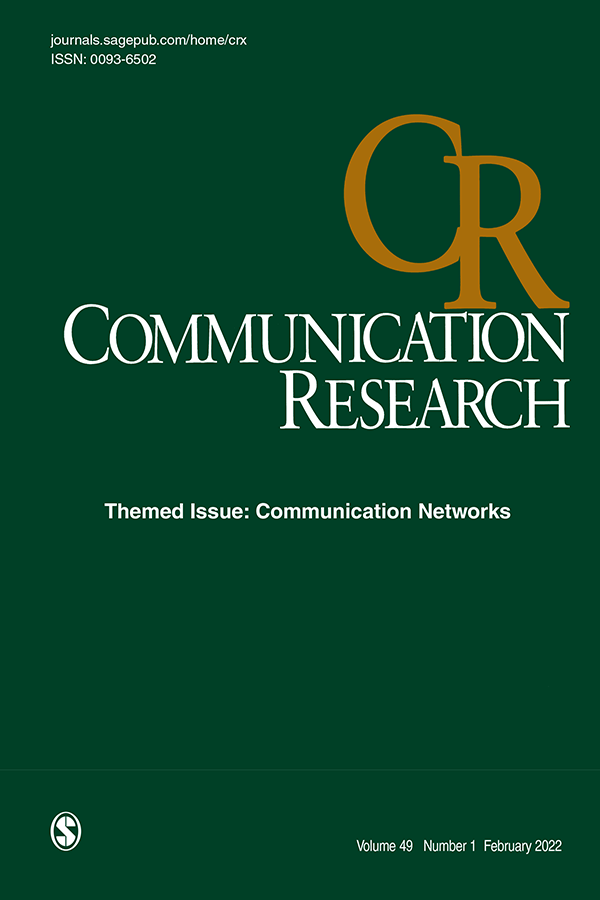Examining How Sex Appeal Cues and Strength Cues Influence Impressions of Female Video Game Characters
IF 3.2
1区 文学
Q1 COMMUNICATION
引用次数: 0
Abstract
Sexualization is a prominently studied dimension of how media content contributes to problematic outcomes for women (e.g., self-objectification). In video game contexts, scholars have debated whether portrayals of powerful characters may disrupt undesirable outcomes of sexual objectification. In two studies, we experimentally manipulated sex appeal cues and strength cues in female characters. Participants reported their impressions in terms of key person perception outcomes and liking of the characters. We also aimed to understand how interactivity shapes impression formation by comparing viewing (Study 1) to playing (Study 2) contexts. Results indicated that sex appeal cues and strength cues interacted to shape character impressions but did so differently depending on the type of interaction participants had with the character. In both studies, sexual appeal cues produced greater disliking of the characters. Our discussion considers the findings with respect to character design in video games and other media entertainment.研究性吸引力线索和力量线索如何影响对女性电子游戏角色的印象
性化是媒体内容如何导致女性问题结果(如自我物化)的一个重要研究维度。在视频游戏中,学者们一直在争论,对强大角色的描绘是否会破坏性物化的不良结果。在两项研究中,我们通过实验操纵了女性角色的性吸引力线索和力量线索。参与者根据关键人物的感知结果和对角色的喜爱程度来报告他们的印象。我们还旨在通过比较观看(研究 1)和游戏(研究 2)情境,了解互动性如何影响印象的形成。结果表明,性吸引力线索和力量线索在塑造人物印象方面相互作用,但根据参与者与人物的互动类型不同,作用也不同。在这两项研究中,性吸引力线索都会使受试者更不喜欢角色。我们在讨论中将这些发现与电子游戏和其他媒体娱乐中的角色设计联系起来。
本文章由计算机程序翻译,如有差异,请以英文原文为准。
求助全文
约1分钟内获得全文
求助全文
来源期刊

Communication Research
COMMUNICATION-
CiteScore
17.10
自引率
0.00%
发文量
20
期刊介绍:
Empirical research in communication began in the 20th century, and there are more researchers pursuing answers to communication questions today than at any other time. The editorial goal of Communication Research is to offer a special opportunity for reflection and change in the new millennium. To qualify for publication, research should, first, be explicitly tied to some form of communication; second, be theoretically driven with results that inform theory; third, use the most rigorous empirical methods; and fourth, be directly linked to the most important problems and issues facing humankind. Critieria do not privilege any particular context; indeed, we believe that the key problems facing humankind occur in close relationships, groups, organiations, and cultures.
 求助内容:
求助内容: 应助结果提醒方式:
应助结果提醒方式:


